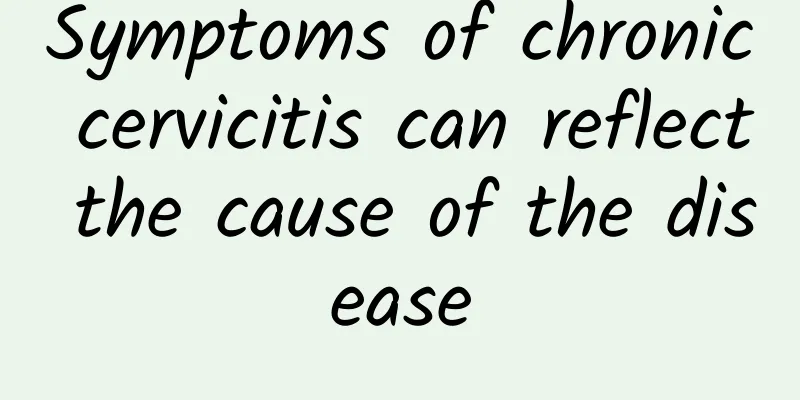What are the best treatments for postpartum cervical erosion?

|
What are the better treatments for postpartum cervical erosion? Cervical erosion is a common and high-incidence disease in clinical practice. The main population is married women. It is mostly caused by childbirth, miscarriage and other uterine cavity operations. Many women with postpartum cervical erosion do not know what to do. Let's take a look at the treatment methods for postpartum cervical erosion. In the treatment of postpartum cervical erosion, other diseases must be ruled out first, such as physiological cervical erosion or cervical cancer precursors. If it is just normal physiological cervical erosion and does not affect the normal quality of life of the mother, doctors generally do not recommend excessive intervention. If there is no history of bleeding during intercourse and there is not much secretion, observation and treatment are often recommended. However, if there is bleeding and increased secretions during intercourse, certain intervention measures need to be taken if necessary, such as laser treatment to reduce the impact of cervical erosion on normal life. Physical therapy is a widely used treatment method with the advantages of short treatment course and good efficacy. It is suitable for patients with larger erosion area and deeper inflammatory infiltration. Commonly used treatments for postpartum cervical erosion include electric ironing, laser therapy, and cryotherapy. In addition, a commonly used method in clinical practice is drug treatment, which is suitable for patients with small cervical erosion and shallow inflammatory infiltration. If a woman is breastfeeding, she must follow the doctor's instructions and take the medicine under the doctor's guidance to avoid the drug affecting the baby. For patients with deep and extensive cervical erosion that involves the cervical canal, cervical conization or total hysterectomy may be considered. However, surgical treatment of postpartum cervical erosion is rarely used nowadays. Regular cervical examinations are necessary, not to prevent cervical erosion, but to prevent cervical cancer. The occurrence of cervical cancer is related to infection with human papillomavirus (HPV). Some patients with high-risk HPV infection are prone to precancerous lesions and cervical cancer when they are continuously infected at the squamous-columnar junction of the cervix. Since the advent of cervical smears, the mortality rate of cervical cancer has dropped significantly. The key is early prevention and treatment. |
<<: How much does it cost to treat cervicitis?
>>: What is the best treatment for mild cervicitis?
Recommend
Adnexitis may be caused by not paying attention to hygiene during menstruation
Adnexitis may be caused by not paying attention t...
How much HCG should be taken to rule out ectopic pregnancy?
If HCG is greater than 15000IU/L, ectopic pregnan...
Experts explain the clinical manifestations of cervicitis
What kind of disease is cervicitis? I believe man...
How to treat pelvic inflammatory disease? Chronic and acute
Pelvic inflammatory disease is divided into two t...
How should women take care of vulvar leukoplakia?
Vulvar leukoplakia seriously affects women's ...
Can’t I apply medicine to the vagina after an abortion?
There are too many girls who have abortions in li...
How to calculate the menstrual cycle
The calculation of the menstrual cycle is from th...
What causes abnormal vaginal discharge in women? 4 reasons for abnormal vaginal discharge
What are the causes of abnormal vaginal discharge...
What if I don't have my period for half a year?
What if I don’t have my period for half a year? M...
Ten key points to prevent pelvic inflammatory disease
I believe everyone knows how much harm pelvic inf...
Cost of care center for patients with threatened miscarriage
Everyone is familiar with threatened miscarriage,...
How to check for bacterial vaginosis
The main symptom of bacterial vaginosis is abnorm...
Be careful! Avoid these 7 high-carb dishes for dinner
Carbohydrates are necessary nutrients for the bod...
Women need to know about the dangers of cervical hypertrophy
The harm that cervical hypertrophy brings to pati...
What if there is blood after the menstrual period?
What if there is still blood after the menstrual ...









